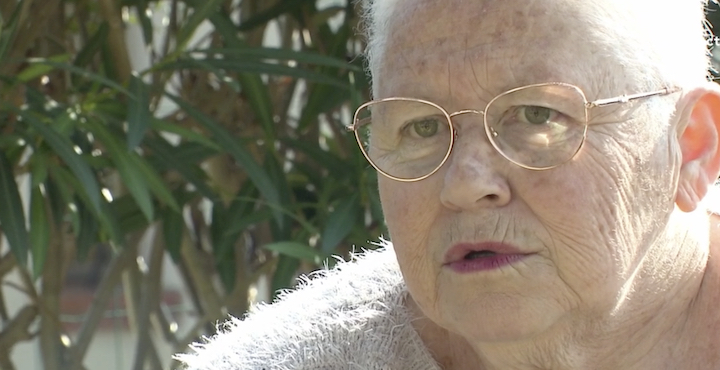The end of life is a very complicated subject. For the moment, the law that applies is the Claeys-Leonetti law, passed in 2016.
This law authorizes the deep and continuous sedation until death but under certain conditions.
- For a patient who can express his will. He must be suffering from a serious and incurable disease, refractory to treatment, and which puts his prognosis at risk in the short term, that is to say in the hours or days to come.
- For a patient who decides to stop treatment.
- For a patient who cannot express his will, the doctor may stop the treatment under the denial of unreasonable stubbornness.
When all the conditions are right
When the conditions are right, doctors can apply deep and continuous sedation, that is, alter the patient’s consciousness, who is asleep. They do not cause death directly, but stopping food and hydration, or disease progression, causes death.
This is the difference with euthanasia, which offers active assistance in dying. Despite the debates in the National Assembly, the official line of the government remains not to touch this law too much.
This explains the LREM deputy of Charente Thomas Mesnier, for him, it is above all necessary to better apply the Claeys-Leonetti law: “the Claeys-Leonetti law, was passed in 2016, after a very long debate, one year, it is only 5 years old. It had been voted unanimously, and really responds to almost all situations, but its difficulty results from the fact that it is in reality very little or poorly applied.
The recommendations for good practice at the hospital date from 2018, so are only 3 years old, and as regards sedation at home, for general practitioners, the difficulty is the recommendations which only date from the beginning of 2020. With recommendations so recent, and with the weakness of the means given to palliative care in our country so far, the urgency is first of all to give the means to the law to apply “.
To give the law the means to apply, the government wants to focus on the development of palliative care: a new 3-year action plan is to be launched this month.
A plan that can suit all situations
The conditions for the application of the Claeys-Leonetti law are restrictive. Even by applying it better, the risk is to have people who are not found in the text.
This is the case for Michelle who lives in Bormes-les-Mimosas. She has a spinal cord defect and autoimmune disease, and she can’t stand painkillers. For her, everyday life is very difficult.
“Everything has become complicated, she explains, keep a book, write, do the basics of life. Watching a movie on TV is difficult because after a while I have to turn around so I can’t really see the screen. I have too much pain in my arms, my head, the whole body is painful.
I have to change my position all the time to relieve myself on one side, then it’s the other side. At night it hurts all over, shoulders, hips, knees, legs and feet “.
At 67, Michelle doesn’t want to live like this anymore. She receives a very small pension, and for her it is impossible to go abroad to die.
So she would like the law to change, and quickly: “Me, it’s euthanasia, it’s clear and clear in my head, it’s been thought about for years and I can’t wait for the government to finally understand that it is not It is not enough to be on the verge of death to claim the right to die with dignity. There is one thing I want to say is that our life does not belong to anyone, and that no one is ‘has the right to tell us how to live or die “.
The reaction of relatives
Michelle has discussed this at length with her only son, who understands her decision.
“The main thing is that my son is there, and that he sees me leaving in peace she confides, not in terrible suffering because for those close to it it is heavy to bear. I am there of course that for him it is important, but he agrees with me, he saw me suffer enough to understand that at some point it will have to stop “.
Michelle expects a lot from the examination of the text today in the National Assembly. It is not certain that the vote will succeed: nearly 3,000 amendments have been tabled on the text, which makes it almost impossible to examine. It is a means for opponents of this law to obstruct its adoption.
The right time to debate the end of life
On the one hand, there are personal convictions of course, but also for some deputies the idea that the current context, with the health crisis and all the deaths from covid, is not the right time to debate the end of life. .
For Jean-Luc Romero-Michel, the president of the association for the right to die with dignity, this argument is inadmissible: “How dare we say that this is not the right time? How can we dare? My mother died of Covid, in very difficult circumstances, she asked to die, she took off her mask. How can we say that when we know under what conditions people die today?
We die very badly and alone, and in incredible conditions. Don’t you think it’s time to talk about it? This is not a debate, I heard someone tell us it’s time to talk about life and not about death, but people are going to die. We are not talking about a choice between life and death, we are talking about a choice between two deaths.
More than ever, it is at this moment that the conclusions must be drawn because as soon as this debate around the Covid is ended, as if by chance, we will forget how badly we die in the ehpads. Now is the time or never to discuss this issue. ”
Whether the law is adopted today or not, the debate is launched, and divides the majority. It therefore seems difficult to think of not going back on it … Especially since, according to an IFOP survey published today, 93% of French people are in favor of the legalization of euthanasia, and, above all,

87% of fellow citizens believe that it is urgent for the National Assembly to debate end-of-life issues. For his part, the president does not support this bill but in 2017, during his campaign, Emmanuel Macron declared that he would like to choose his end of life.

 Cherry tomatoes contaminated with salmonella: 92 sick and 1 dead
Cherry tomatoes contaminated with salmonella: 92 sick and 1 dead  A better coaching method can make a person grow
A better coaching method can make a person grow  What is the method to prevent diabetes in children?
What is the method to prevent diabetes in children?  What are the effective factors in causing stomach ulcers?
What are the effective factors in causing stomach ulcers?  Why do embarrassing memories seem to appear at night?
Why do embarrassing memories seem to appear at night?  The amazing link between SARS-CoV-2 infection and newly started diabetes
The amazing link between SARS-CoV-2 infection and newly started diabetes  WHO says monkey pox is not a global emergency right now
WHO says monkey pox is not a global emergency right now  Single cell RNA sequencing uncovers new mechanisms of heart disease
Single cell RNA sequencing uncovers new mechanisms of heart disease  Hepatitis of unknown origin: 3 new deaths and 228 cases worldwide
Hepatitis of unknown origin: 3 new deaths and 228 cases worldwide 